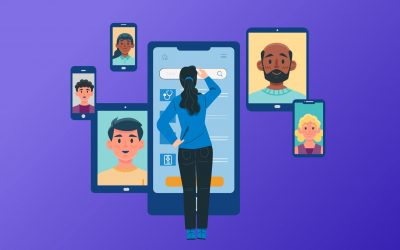Developing Undergraduate Research Skills
by Tomoko McGaughey, MPH, MSc Student

In the fall of 2021 I was assigned as a Teaching Assistant for an undergraduate class where the students are building their skills in research, including the developing a research proposal as a group project. It has been amazing to see how much interest and knowledge these students carry in different areas of health, ranging from maternal health impacts on fetal development, air quality and lung health, or the gastrointestinal effects of ginger beer. To see this kind of work so early in their academic career has shown me that the next generation will go amazing places as their knowledge basis grows.
This experience has also highlighted the importance of teaching young academics about ethics early in their careers. It is not surprising that early undergraduates lack a comprehensive picture of research ethics and health equity – and it has prompted me to think about what training or guidance might be useful for students at this stage.
Students in Health Sciences are clearly interested in making the world better for individuals who are marginalized or underserved, and there they demonstrate a large appetite for learning. However, no matter how well meaning our research is, it doesn’t mean we can ignore that we are hoping to do research on fellow human beings who have thoughts, feeling and their own struggles they are experiencing daily. Further, that doesn’t mean we can remain ignorant of our own shortcomings when it comes to research ethics and engaging with people who are different than us.
Considerations for Research Ethics
According to Nancy Walton (RN, PhD, Ryerson University), there are three objectives in research ethics.
- First, is to protect human participants,
- Second is to ensure that research is conducted in a way that serves interests of individuals, groups and/or society as a whole, and
- Third is to examine specific research activities and projects for their ethical soundness (e.g. management of risk, protection of confidentiality, and process of informed consent).

Although some efforts have been made by students based on these three objectives, the route some students have chosen illustrates that they do not fully understand the impact their work may have on individuals and the groups they are trying to serve, and that they do not have insights from this community.
My concerns in how ethics is approached lie in the way we are looking at engaging with those whose lives we are studying. We require a sound, ethical process to engage with ANY community – let alone those who are often under or poorly served by the health system or seen as potentially vulnerable.
Questioning your own research
In line with teachings from early on in my academic career, and the objective presented by Dr. Walton, I ask myself three questions when considering the ethics of a research project, placing myself in the participants shoes:
- Would I feel like this research project is causing not only myself but my community any harm (physical or emotional)?
- Do I feel like I am being ostracised because of how I identify?
- Am I respecting the autonomy of this community group and taking into consideration any historical vulnerabilities they may have experienced?
Patient engagement

In addition to the above, it is extremely important to consult with any communities before considering conducting research on them. This perspective is foundational in the shift to patient-engaged research across the health sciences. At the outset, engagement could simply include a series of conversations and/or focus groups, including general community members and individuals who are identified to be leaders or informed on the topic you are researching, sampling their opinion on issues that should be addressed through research. Things like language to be used or avoided, references, important events or cultural considerations, and/or individuals that should be taken into consideration during the research process can be captured through the research process, when they may not have been identified otherwise.
Taken further, patient engagement could include the incorporation of individuals through the research process, either through study design planning, data collection, and data analysis so the community’s perspective is considered throughout the whole research process. This continued consultation and reiteration process can allow communities to have their voice heard in a way that is respectful to their boundaries and experiences. This engagement is essential when working with First Nations, Inuit, and Métis communities, and I completely see why and the importance behind it. When systems consistently threaten your autonomy, silence your advocacy, or neglect and even threaten your health, we need to ensure our research does not replicate this same system.
Final thoughts
Since coming to Carleton, I have seen how the student, administrative, and teaching bodies of this university are extremely inclusive, supportive, accepting and understanding. This is something that drew me to Carleton and I want to do my part to ensure that this inclusiveness extends to health research, and how students are learning about the ethics of what they are being trained for. I can see how our undergraduate students are very well-meaning, want to change the world for the better, and improve the quality of life of those in their local communities. However, I hope that while these young scholars are exploring their dreams, they will continue to consider the implications of their work on those around them.
At the end of the day, I’ve written this short post because I not only care about protecting those who are vulnerable when it comes to research, but also because I care about the futures of the students around me. You all have a bright future but let’s try to make our work more inclusive and understanding as we move forward in this already very scary world.